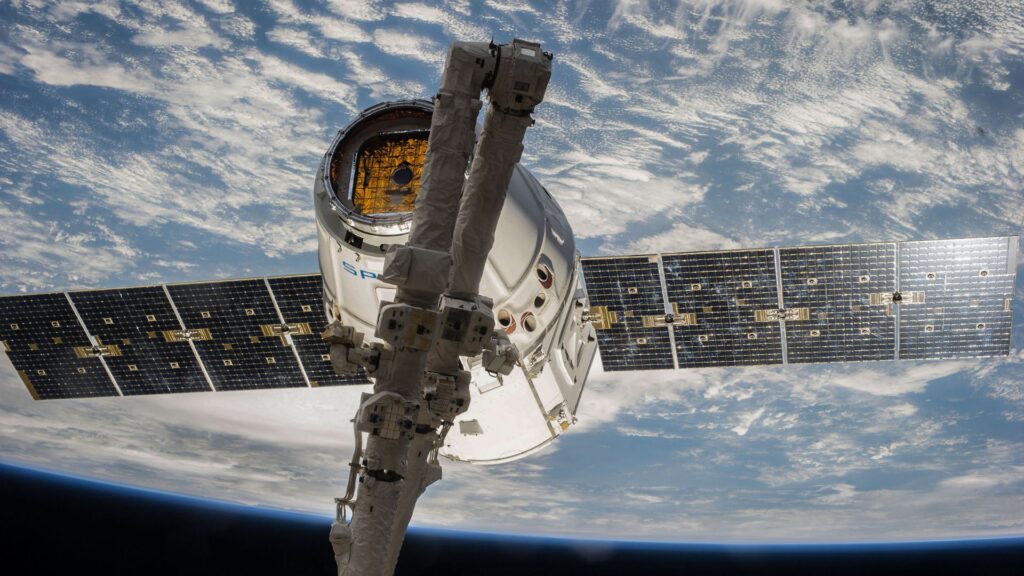

The space ecosystem is growing exponentially: more launchers and more satellites enter orbit every year, with increased concerns around space sustainability from policymakers and industry alike. Recent calls for a global push to eliminate space debris have been made, with satellites in orbit increasing from 9,000 to 60,000 by 2030. Privateer calculates that there are more than 27,000 pieces of anthropogenic space objects orbiting Earth – it should be noted this figure only incorporates known objects larger than a tennis ball – with the adjusted figure being closer to 100 million. Meanwhile, the space sector is on track to be worth USD 1 trillion by the year 2040, with much of this value driven by industry activity, and even more satellites in orbit. To encourage a more sustainable use of space, various initiatives have developed across actors operating within the space domain.
ITU Takes the Lead
To further underline the growing awareness to the challenges of space sustainability, the International Telecommunications Union (ITU) first used the term “Space Sustainability” at its 2022 plenipotentiary conference. This was the first reference since the ITU Constitution’s language of ‘rational, efficient, and economic use’ of the radio spectrum was defined, hinting at the need for a sustainable approach to radio spectrum use in space.
The 2022 plenipotentiary was ground-breaking for space sustainability, with the adoption of Resolution 219 on ‘Sustainability of the radio-frequency spectrum and associated satellite-orbit resources used by space services’. The resolution was originally proposed over concerns of the rising numbers of NGSO systems and their impact on access to GSO systems used for connectivity. The primary debate prior to adoption was alleged interference issues and other harms relating to increasing use of shared spectrum and orbital resources in NGSO systems. The Radiocommunication Assembly was instructed to develop necessary studies on these effects, while the Director of the Radiocommunication Bureau was instructed to submit a report to WRC-23 on the implementation of the resolution. While the resolution is a first of its kind at the ITU, it must be noted that some Member States argued that the issues are outside the ITU’s mandate. This debate and remit on the work will continue to be discussed in the next WRC in 2027.
The UN’s Expanded Work
The United Nations Committee on the Peaceful Uses of Outer Space (COPUOS) also defines Space Sustainability in its Long-Term Sustainability Guidelines (LTS). The ground-breaking aspect of the document is its emphasis on outer space as a multistakeholder domain, expanding the responsible and captured actors.
So, with a wider scope, one consideration which must be acknowledged in the space sustainability debate is the need for dispute resolution. One proposal that has garnered support is enforcement through arbitration, which is already present in many other international sectors. Space Sustainability Arbitration has many benefits, chiefly that it can acknowledge international law as the substantive law backed by national law where necessary. Additionally, it allows the enforcement of commercial contracts as well as Member State duties, particularly through the Permanent Court of Arbitration (PCA). The PCA has already adopted Optional Rules for Arbitration of Disputes Relating to Outer Space Activities.
The Role of The Private Sector
Pulling together international work, and turning to the affected actors, private entities should be more involved in international discussions on the subject.
Company initiatives represent a market-driven approach, national initiatives a voluntary approach, and multistakeholder initiatives occupying a unique role as sustainability-focused approaches. All of these approaches are necessary to maintain a healthy space ecosystem, but each require different support and oversight.
The coming together of these entities – especially the private sector – is vital in creating a baseline for collaboration, which will in turn support the eradication of technical, economic, and policy barriers to space sustainability, and space itself. The mechanisms to establish these collaborative baselines, their enforceability, and their useability in different jurisdictions, will fall within the remit of the national governments.
Adopting National Space Laws
Why, then, should states adopt national space laws? In doing so, governments can protect revenue streams and bridge compliance gaps. National regulations give much needed structure to the different multistakeholder activities. They also provide a geopolitical stance for managing engagement with international partners and most importantly, they allow for the enforcement of rights and responsibilities within a jurisdiction. The LTS Guidelines acknowledge that governments are most capable to translate their unique conditions and needs into actionable policies.
With this influence, the opportunity for companies to support the establishment of best practices in space, through industry-led norms, is immense. Consulting companies have the unique vantage point of working across jurisdictions, with a vast number of different stakeholders, placing them at “birds-eye view” point of being able to support especially anticipatory diplomacy, having understood the industry from diverse perspectives.
Successful guideline implementation will both rely on and strengthen international cooperation in space activities. Implementation of the guidelines will also facilitate improved coordination and information exchange among space actors from government, the private sector and civil society. Consulting companies, with their ability to operate across jurisdictions, analyse different sets of information across wide themes, and engage with diverse actors, act as a melting pot, or an expert advisory tool to turn this data into actionable insight for different stakeholders according to their different contexts.
As space sustainability becomes an increasingly relevant topic, with a multitude of players getting involved, it is vital that the space ecosystem harmonises approaches and sets common standards and guidelines.
Access Partnership is prepared to support your business with the insights to best understand the trajectory of conversation and ensure you are both up to date, and adequately positioning yourself in the conversation. For more information, please contact Ivan Suarez [email protected], Ruvimbo Samanga [email protected], and Daniel Batty [email protected].
